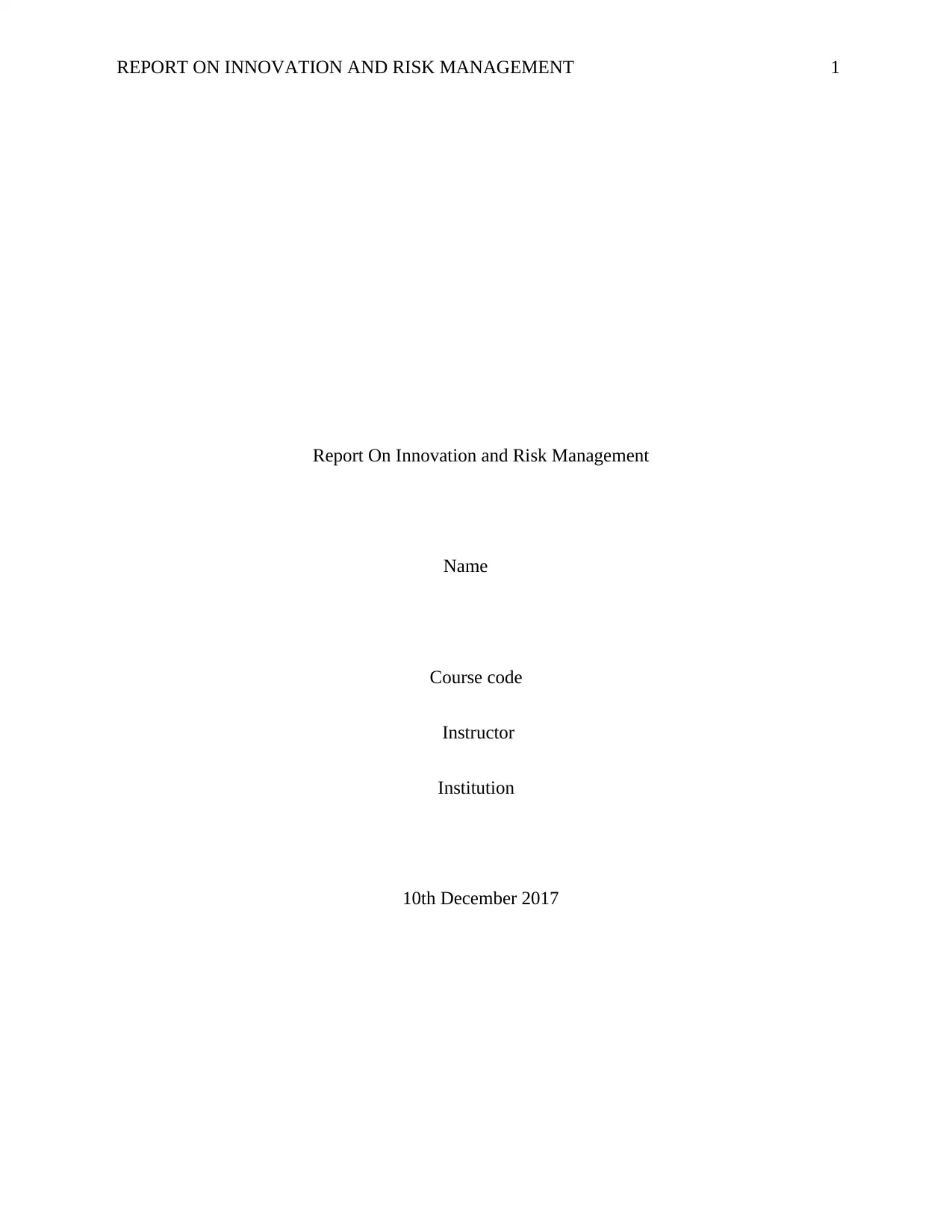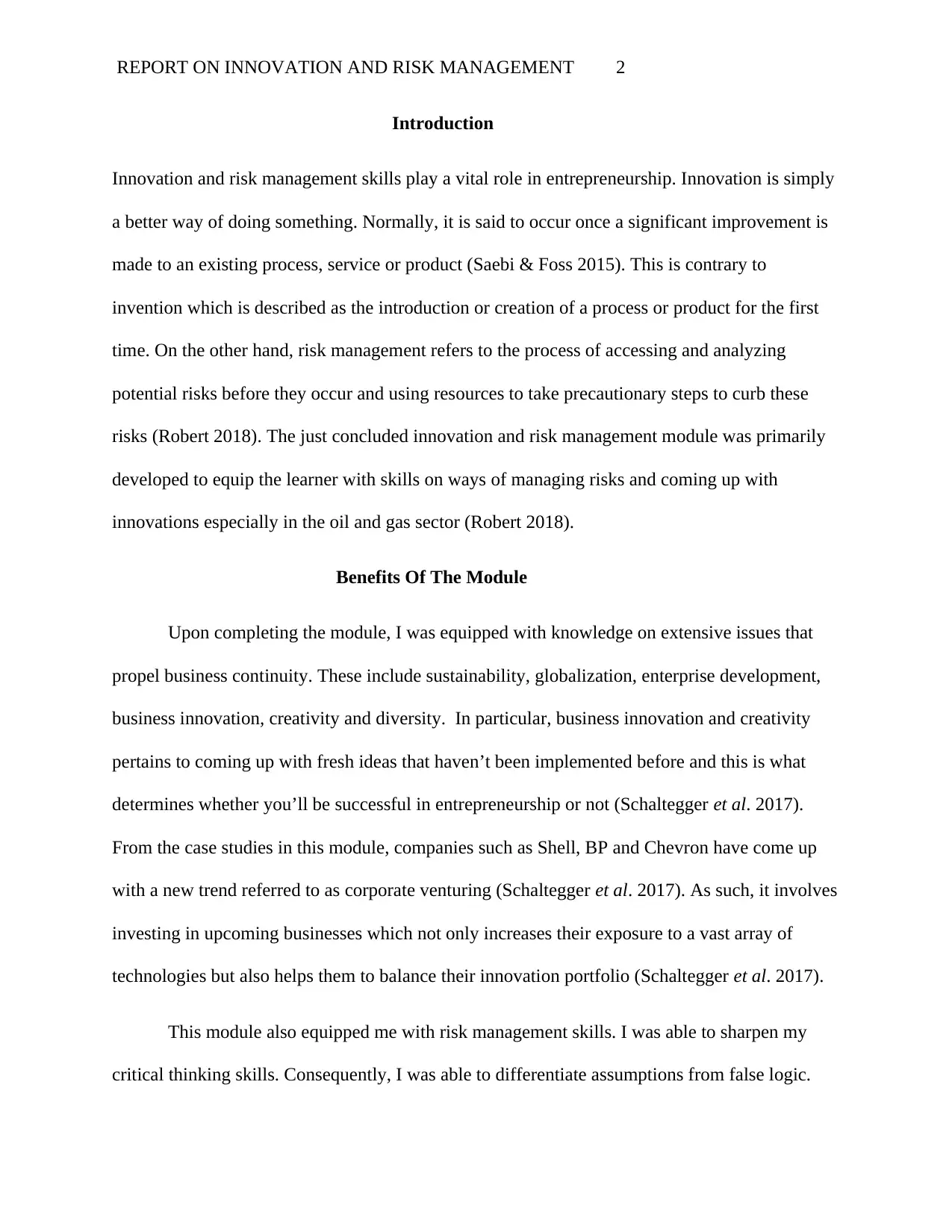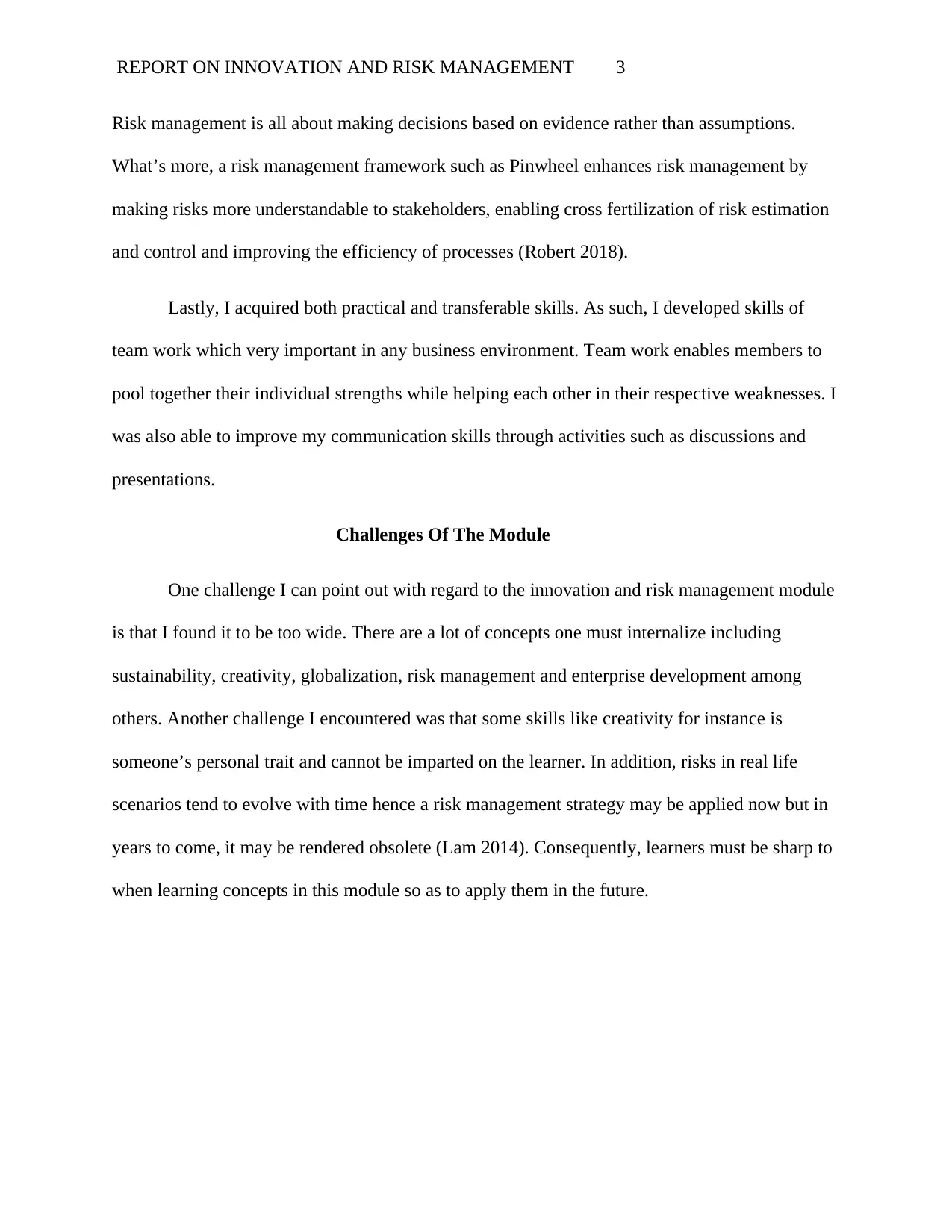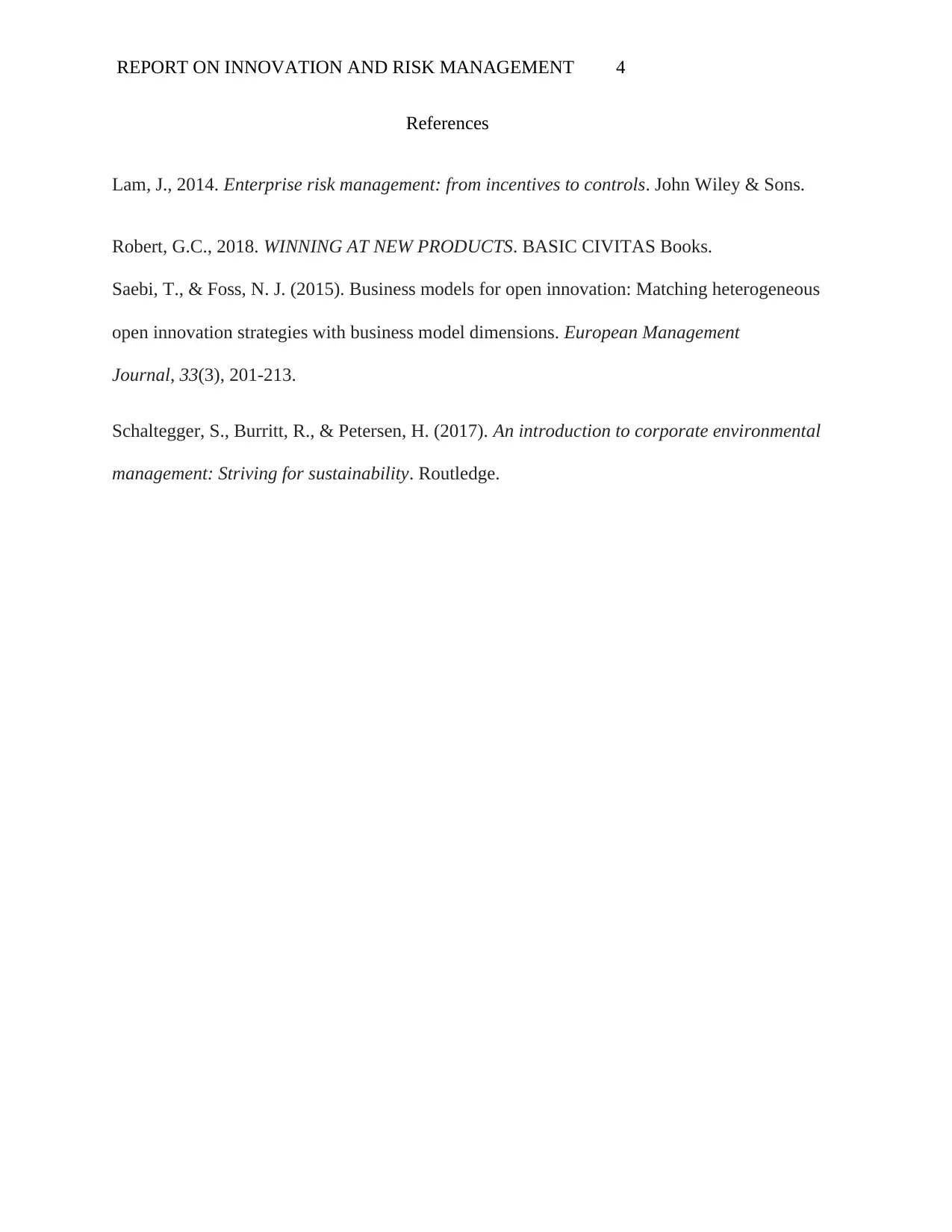Comprehensive Report: Innovation and Risk Management Module Analysis
VerifiedAdded on 2020/04/15
|4
|731
|137
Report
AI Summary
This report examines the innovation and risk management module, highlighting its importance in entrepreneurship. The report discusses the benefits of the module, including the acquisition of skills in sustainability, globalization, business innovation, and risk management. It emphasizes the significance of creativity and corporate venturing, citing examples from companies like Shell, BP, and Chevron. Furthermore, it details the development of critical thinking, risk assessment, and practical skills such as teamwork and communication. The report also acknowledges the challenges of the module, such as its broad scope and the evolving nature of risks, while stressing the importance of applying the learned concepts in real-world scenarios. The report concludes by referencing key literature on enterprise risk management and new product development.
1 out of 4











![[object Object]](/_next/static/media/star-bottom.7253800d.svg)